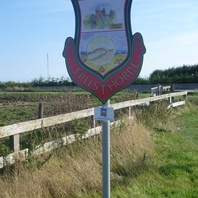
Viking Names
Trusthorpe
Trusthorpe, in the Calceworth Wapentake of Lincolshire, comes from the Old Norse male byname Strútr and Old Norse þorp ‘a secondary settlement, a dependent outlying farmstead or hamlet’. The same personal name appears in Strubby, Lincolnshire, but here the initial S- has been lost through dissimulation.
Read More
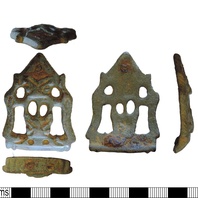
Viking Objects
Stirrup-Strap Mount (PUBLIC-ED7865)
This example of an Anglo-Scandinavian copper-alloy stirrup-strap mount is classed as a Williams Class B Type 2 and is decorated with openwork zoomorphic designs.
Read More
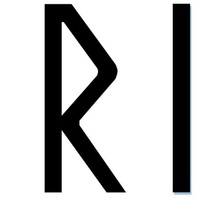
Viking Names
Ingirid
Ingiríðr is very common in Norway but less so in Iceland. It is also recorded in Denmark and Sweden. The name is also attested in medieval documents from Lincolnshire and Yorkshire. It is also the first element of the place-name Ingerthorpe, West Yorkshire. It is an Old Norse compound name with its first element Ingi–, which is of doubtful origin but might relate to a Greek word meaning ‘lance’ or ‘staff’ combined with –fríðr, related to Gothic frījōn ‘to love’, with original meaning ‘loved’, later ‘fair’. In origin it is thus the same name as Ingifríðr.
Read More
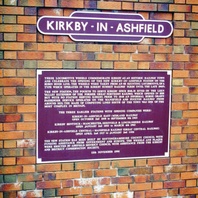
Viking Names
Kirkby in Ashfield
Kirkby in Ashfield, in the Broxtow Wapentake of Nottinghamshire, comes from Old Norse kirkja ‘a church’ and Old Norse bý ‘a farmstead, a village’. Ashfield is an old district name from Old English aesc ‘ash-tree’ and feld ‘open country, unencumbered ground’, though no mention of it has been found except in connection to Kirkby and Sutton in Ashfield, Nottinghamshire.
Read More
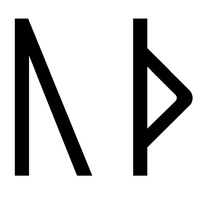
Viking Names
Auda
A single instance of Auða is recorded in West Scandinavia (Norway and Iceland). It was unknown in Denmark but a few instances of Auða are recorded in Swedish runic inscriptions. The form Auda is recorded in a medieval Lincolnshire document. Auða is a short form of Old Norse names in Auð-, an element which is obscure in origin but is perhaps auðr ‘wealth’ or from the stem in auðinn ‘that befalls one’ and jóð ‘new-born baby’.
Read More
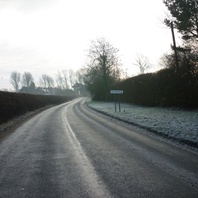
Viking Names
Stixwould
Stixwould, in the South Riding of Lincolnshire, is a hybrid place-name from the Old Norse male personal name Stigr and Anglian wald ‘a forest; high forest-land’, which is topographically appropriate.
Read More
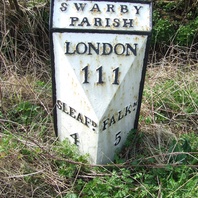
Viking Names
Swarby
Swarby, in the Aswardhurn Wapentake of Lincolnshire, is an Old Norse compound formed from the male byname Svarri and by ‘a farmstead, a village’. Swarby is a joint parish with Aswarby.
Read More

Viking Names
Beli
Beli is probably an original byname derived from the Old Norse verb belja ‘to bellow, roar’. No certain instance is recorded in Viking Age Scandinavia, though it is recorded as a giant-name in Old Norse mythological texts. Beli is suggested as the first element in Beelsby, Lincolnshire.
Read More
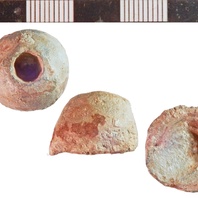
Viking Objects
Lead Weight (NLM-20FC79)
This cast lead weight has an empty apical hole which may have held something at some point. The mass may suggest this to have represented four Viking age units of 4.07gms, as used for silver bullion transactions. It is also possible that this object was used as a gaming piece and thus it could have served a dual purpose. Weights are an important form of evidence for Viking Age commerce and the use of standards across the different economic systems within which Vikings were integrated. Many of the weights discovered, particularly ones in Ireland and those of Arabic type, suggest that a standardized system of weights existed in some areas. These standard weights, alongside standard values of silver, are what allowed the bullion economy of Viking occupied areas to function. A bullion economy was a barter economy that relied on the exchange of set amounts of precious metal in various forms, such as arm-rings or coins, for tradable goods, such as food or textiles. Each merchant would have brought their own set of weights and scales to a transaction to make sure that the trade was conducted fairly.
Read More

Viking Names
Skardi
The Old Norse male personal name Skarði was originally a byname from Old Norse skarði ‘notch, hack’. A few instances are recorded as a personal name in Norway from the eleventh century onwards. It is also found as a byname in Norway and Iceland and in some Swedish runic inscriptions in the form skarþi. Skarði is possibly found in a Danish place-name and a strong form of the name Skarth appears in Denmark in the fifteenth century. The personal name may also be the first element in Scartho, Lincolnshire.
Read More
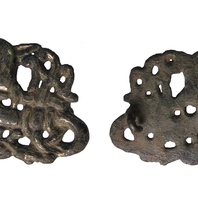
Viking Objects
Urnes-Style Brooch (LIN-F79A53)
This brooch has a gilded openwork zoomorphic design in the Urnes style. For more information on Scandinavian jewellery in England check out our blog: Brooches, Pendants and Pins: Scandinavian Dress Accessories in England.
